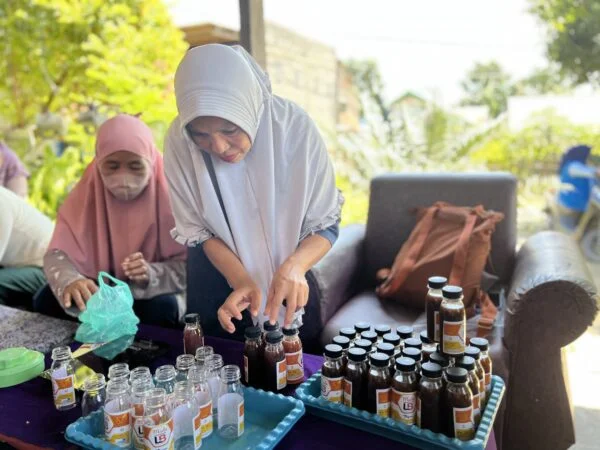
Nursiana, 39, is a kindergarten assistant from Balaroa, a village that was badly affected after an earthquake and tsunami hit Indonesia’s Central Sulawesi province in 2018.
Following the disaster, Balaroa was plagued by liquefaction incidents – collapses in soil in the aftermath of earthquakes that can lead to entire homes, vehicles and bridges being swallowed by the earth.
“The impact of the disaster here was so severe. Many people lost their jobs, houses and family members,” Nursiana says. “The school was closed, and I did not work for 2 years.
“The first time I heard about Islamic Relief was during the disaster, when they came here to help the survivors. We were invited to form a working group for women which helped us to make a living. I learned a lot from the project and it’s very useful in helping me and other women make a living.”
Nursiana is a member of a honey cultivation project, which teaches women how to produce honey and market and sell products locally.
It provides an important source of income to families whose livelihoods have been severely impacted by the disaster and the coronavirus pandemic.
Nursiana is one of 26 women who participate in Balaroa, while a sister project in nearby Petobo village has 15 members.
“The women involved in this project have known each other for a long time but we’ve become closer through this work,” Nursiana says.
“The honey cultivation project has had a lot of positive impacts. Alhamdulillah, we didn’t have anything to do before the project began. We just stayed at home and did chores. Now, we have an income to help our families,” says Nursiana, who lives with her husband and 12-year-old son.
“I would like to thank Islamic Relief for helping to rebuild our economy. We hope Islamic Relief will stay by the side of survivors and our community.”







